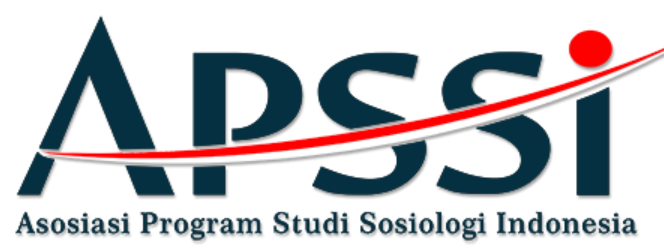Stereotip Warga Tionghoa Dalam Geopolitik Hubungan Indonesia dengan Tiongkok
DOI:
https://doi.org/10.47776/MJPRS.001.02.03Keywords:
Stereotype, People’s Republic of China, Chinese, geopolitics, Indonesia-China relationsAbstract
China’s very rapid development has implications for regional relations in the region. Indonesia has made a false evaluation and calculation from a geopolitical and geostrategic point of view which is applied as a national policy and resilience. The most rational consideration of a free and active foreign policy is with the bilateral relations between Indonesia and China, not only in an ordinary partnership but more in close relations which have economic and technological implications. The geopolitical conditions in the dynamic relationship between Indonesia and the People’s Republic of China can be seen in the investment economic cooperation where the People’s Republic of China is one of the four largest investors in Indonesia in the last five years. The South China Sea polemic and the Covid-19 pandemic that originated in Wuhan China also further added to the dynamics of the relationship. The relationship between Indonesia and the People’s Republic of China has been ready to ebb and flow since the recognition of the establishment of the People’s Republic of China in 1949, experiencing events such as the dual citizenship agreement, fluctuations in political ideology from the Old Order to the New Order, and state policies towards ethnic Chinese after that. Policies such as assimilation based on stereotypes towards the Chinese ethnic group have left wide gaps in the relationship between the state and its population as well as the attitude of the Indonesian people towards ethnic Chinese was clearly seen during the 1998 reformation, event appears not yet finished in resolving the problem, as seen in the 2017 DKI Jakarta Pilkada.
Downloads
References
Aldila, Nindya. 2020. “Ekspor Indonesia Ke China Naik 6,4 Persen, Defisit Perdagangan Menciut.†Ekonomi Bisnis. Retrieved (https://ekonomi.bisnis.com/read/20201007/12/1302056/ekspor-indonesia-ke-china-naik-64-persen).
Barton, Greg. 2020. Biografi Gus Dur. A. Suaedy (editor). Yogyakarta: IRCiSoD.
Bidara, Melita Angelin, Michael Mamentu. 2018. “Kepentingan Amerika Serikat Dalam Konflik Laut Cina Selatan.†Jurnal Eksekutif 1(1).
Kharisma, Muhammad Waffaa. 2020. “Dunia Di Tengah Pandemi COVID-19: Perspektif Geopolitik.†CSIS (April):1–5.
Kuncoro, Joko. 2008. “Prasangka dan Diskriminasi". Fakultas Psikologi Unissula. Semarang: Fakultas Psikologi Unisula 1–16.
Kuntjara, Esther, Chang Yau Hoon. 2020. “Reassessing Chinese Indonesian Stereotypes: Two Decades after Reformasi.†South East Asia Research 28(2):199–216.
Putri, Cantika Adinda. 2020. “Nvestasi Di RI Semester I: Singapura Juara & China Runner Up.†CNBC Indonesia. Retrieved (https://www.cnbcindonesia.com/news/20200722142637-4-174604/investasi-di-ri-semester-i-singapura-juara-china-runner-up).
Raco, Jozef. 2018. Metode Penelitian Kualitatif: Jenis, Karakteristik Dan Keunggulannya. Jakarta: PT Gramedia Widiasarana Indonesia,.
Raharjo, Sandy Nur Ikfal. 2014. “Peran Indonesia Dalam Penyelesaian Sengketa Laut Tiongkok Selatan.†Jurnal Penelitian Politik 11(2):55–70.
Said, Irwanti. 2019. “Hubungan Etnis Cina dengan Pribumi: Sebuah Tinjauan Sosiologis.†Jurnal Mimbar Kesejahteraan Sosial, Edisi 2 M 2.
Suryadinata, Leo. 2014. “Kebijakan Negara Indonesia Terhadap Etnik Tionghoa: Dari Asimilasi Ke Multikulturalisme?†Antropologi Indonesia 0(71):1–12.
Suryani dan Ana Sabhana Azmy. 2020. “Political Identity and Multiculturalisme Strengthening Political Identity of Chinese in a Post New Order.†Perspektif 9(2):183–94.
Yandry Kurniawan. 2016. “One Belt One Road (OBOR): Agenda Keamanan Liberal Tiongkok.†Politica 7:238.
Zhou, Taomo. 2019. Revolusi,Diplomasi, Diaspora: Indonesia, Tiongkok, Dan Etnik Tionghoa, 1945-1967. Jakarta 10270.
Zuhri, Ahmad Syaifuddin. 2019. Islam Indonesia dan China: Pergumulan Santri Indonesia di Tiongkok. Yogyakarta: Aswaja Nusantara Press.
Zuo, Zhigang. 2018. Blue Book of Indonesia No 2 Report On Economic and Social Development of Indonesia 2018 Trends and Challenges. Social Sciences Academic Press (China).







